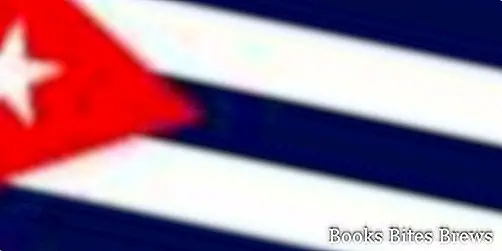Cuba tourist information, including all the useful things to know before leaving for a trip or vacation to the largest island of the Caribbean in the Antilles.
Cuba in a nutshell
- Capital: Havana
- Area in sq km: 110,922
- Population: 11,300,000 (first half 2006)
- Catholic religion
Where is it
Cuba is the largest island of the Antilles, it is located between the Gulf of Mexico, the Caribbean Sea and the Atlantic Ocean, east of the Yucatàn Peninsula and south of Florida.
In fact, the submarine continental shelf on which Cuba once stood was joined to these two peninsulas.
Its territory is mainly flat.
The most important reliefs are made up of the Sierra Maestra, in the south-eastern part of the island.
The coast is mostly marshy and bordered by coral reefs, with numerous inlets.
In front of the coasts there are more than 1500 islands, the largest of which is the island of Youth.
Hydrography
The most important river on the island is the Cauto.
Climate
The climate is hot and humid, with scarce annual and daily temperature variations. In particular, the seasons can be divided into two: a dry one (from November to April) and a wet one (from May to October).
During this period, thunderstorms frequently develop, especially in the afternoon. Cyclone risk affects the months of September / October.
Population
The population is mainly composed of whites (especially of Spanish descent), mulattoes, Africans and a small percentage of Asians.
Recommended readings- Haiti (Caribbean): what to see
- Virgin Islands (American): what to see
- Grenada (Caribbean): what to see on the spice island
- Cuba: useful information
- Caribbean: what they are, holidays
Economy
The island's economy is mainly based on agriculture, livestock breeding and tourism.
Now to Cuba
In Cuba compared to Italy, it is necessary to move the clock hands 6 hours back.
Daylight saving time comes into effect roughly in the same period in which it enters into force in Italy.
Spoken language
The official language is Spanish.
When to go
The summer months are the hottest and rainiest months. Typically the months of July and August are characterized by a greater crowding on local beaches, since it is the holiday season for many Cubans.
During the months of September and October, there is a risk that the island will be hit by hurricanes. The best season is winter (December / April).
Necessary documents
A valid passport is required to enter the country. An entry visa (Tarjeta de desembarco) is also required, which is provided by the tour operator together with the ticket.
If the trip is organized on your own, you must apply for a visa at the offices of the Cuban Consulate in Italy, or upon arrival in the country, at the airport, at the offices of the immigration authorities, upon payment of a local tax, for a maximum period of 30 days (renewable).
This document, which is stamped upon entry into the country, must be kept during the period of stay and then be presented again to the customs officials, upon departure from Cuba, when payment of a tax will also be required. boarding.
Phone
- The international prefix for making calls from Italy to Cuba is: 0053
- The international prefix for calling from Cuba to Italy is: 11939
In the provincial capitals and in the tourist resorts of the island there is cellular network coverage; our GSM mobile phones also work using the Roaming of the local Cubacel company. The Internet is not widespread.
Electricity
The electric current in Cuba is 110 volts, therefore an adapter is needed.
Money and credit cards
The official currency of Cuba is the Cuban Peso, this currency is used almost exclusively by Cubans and in some cases by tourists (for example, payment of public transport and for some small purchases made along the way).
The tourist currency of Cuba is the convertible peso: this is the official tourist currency. With this currency all tourist services (restaurants, clubs, rentals) and goods are paid.
The US dollar and American Express and Diners Club credit cards are not accepted, and withdrawing cash from other credit cards will incur a heavy commission.
Vaccinations
There are no mandatory vaccinations to go to Cuba. However, it is recommended to drink only bottled water and not to use ice for drinks.
Healthcare facilities may be free of medical supplies and medicines.
It is important to have medical insurance against accidents and accidents since hospital administrations require payment of the costs incurred when the patient is discharged.In case of non-payment, repatriation is denied.
How to get
plane
We list some airlines that organize flights to Cuba:
Iberia, with a stopover in Madrid, Air France, with a stopover in Paris and Klm, with a stopover in Amsterdam make connecting flights between Italy and Cuba.
Charter flights
- BLUEPANORAMA flights from Milan Malpensa, Rome Fiumicino and Bologna to Havana.




